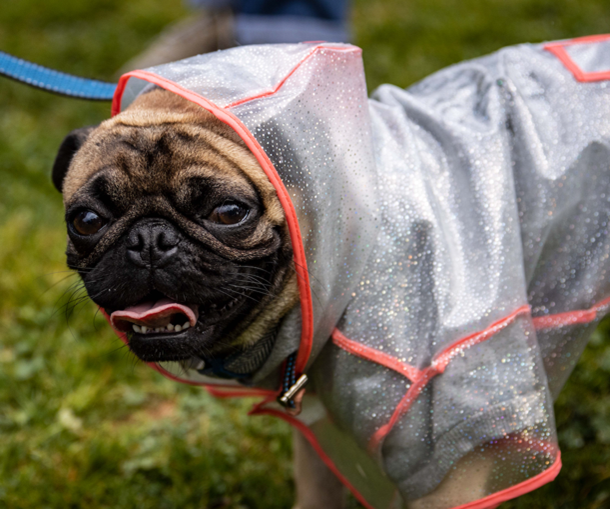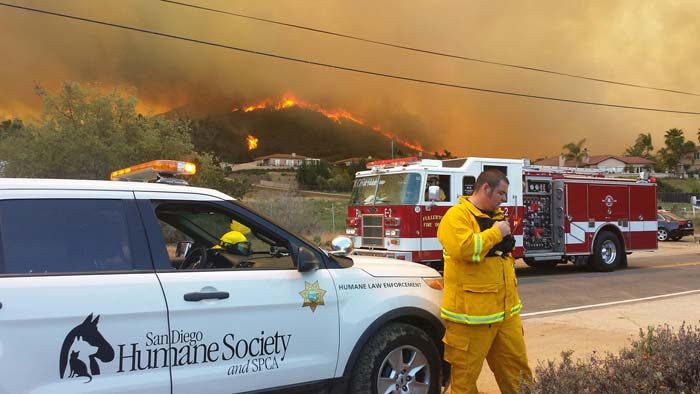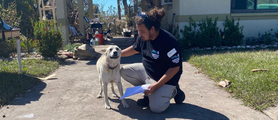Love Is in the Air!

As we approach Valentine’s Day, we are entering wildlife breeding season, and native predators and prey species are likely to cross public pathways in parts of San Diego County. To avoid unwanted love from wildlife during this time, people are encouraged not to inadvertently attract these animals.
During this time of year, many of the larger predators who typically lead solitary lives are seeking out their mates. “As spring is fast approaching, we will see more wildlife on the roadways, in the skies and on the trails,” said Christine Barton, director of operations and wildlife rehabilitation at San Diego Humane Society’s Ramona Wildlife Center. “First, we will start seeing bunnies, squirrels and songbirds, while the predators finish courting and making house. This gives the prey species time to have babies and start dispersing just in time for the predators to start looking for food to feed their babies.”
You may see more coyotes, foxes, bobcats, raccoons and skunks crossing roads in hopes of finding their mate or settling into a nice place to start their new families. Raptors — especially red-shouldered hawks and red-tailed hawks — can be heard screeching and carrying on in the skies and trees during the day. At night, great horned owls can be heard hooting and barn owls screaming more often than normal. These are all typical mating behaviors — and while some may enjoy witnessing the more prominent presence wildlife, others may prefer not to cross paths with larger predators, especially in their own backyards.
Tips to avoid unwanted love from wildlife:
- Avoid leaving human and pet food outdoors. It can attract animals ranging from racoons to coyotes.
- Keep trash in containers with tight lids.
- Ensure compost bins are sealed and avoid composting meat or fish scraps.
- Remove fallen fruit from the ground.
- Make sure bird feeders and bird baths are in appropriate places, since they will attract other wildlife.
- Never hand-feed wild animals. If they get accustomed to people, it may lead to their demise.
Many more tips, including species-specific advice, by visiting Coexisting with Wildlife.
Published: February 12, 2021








